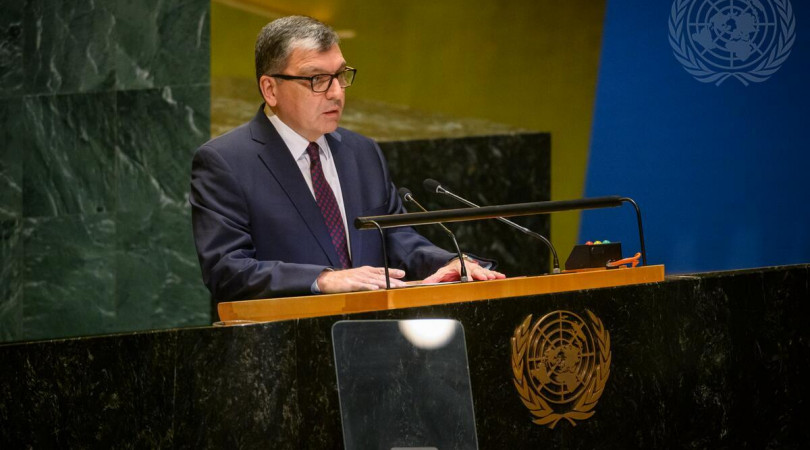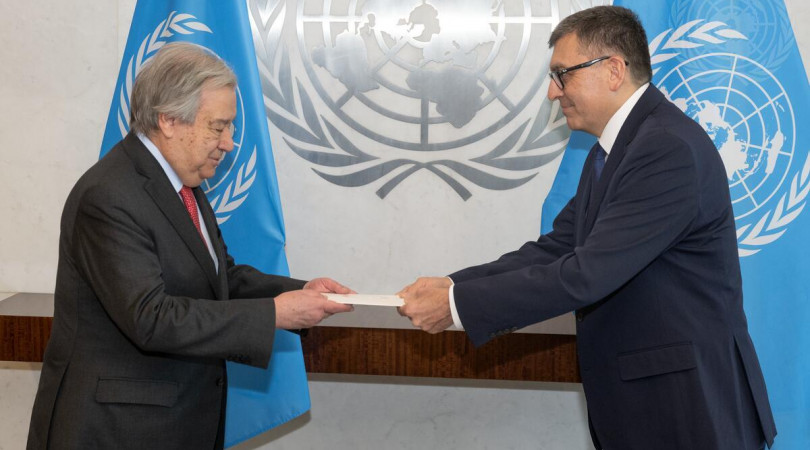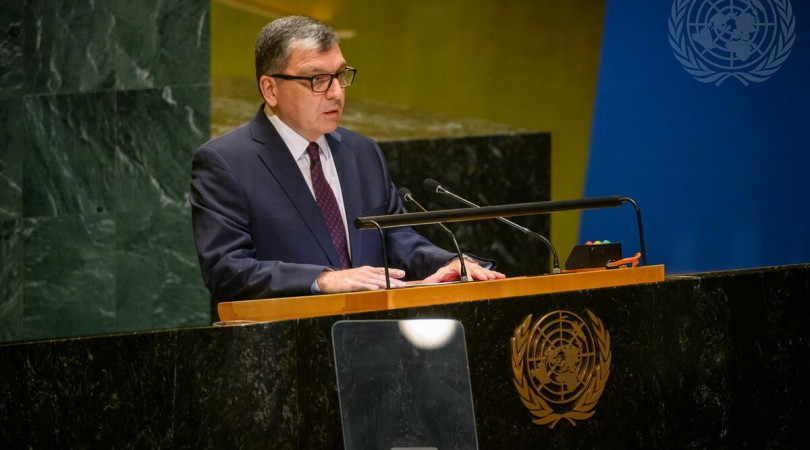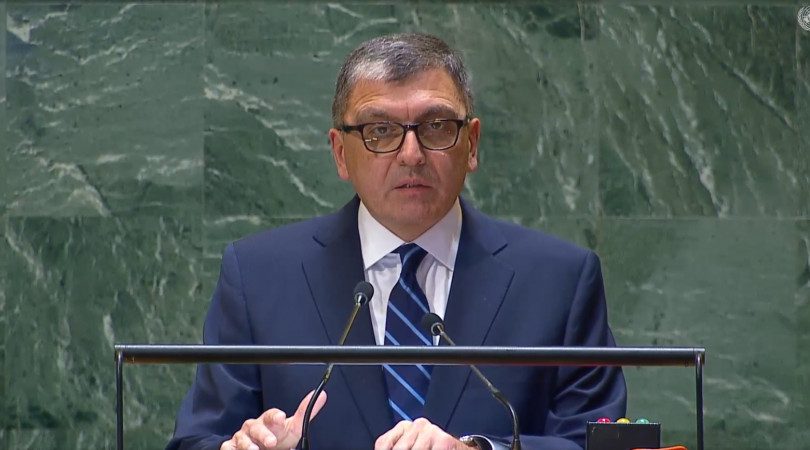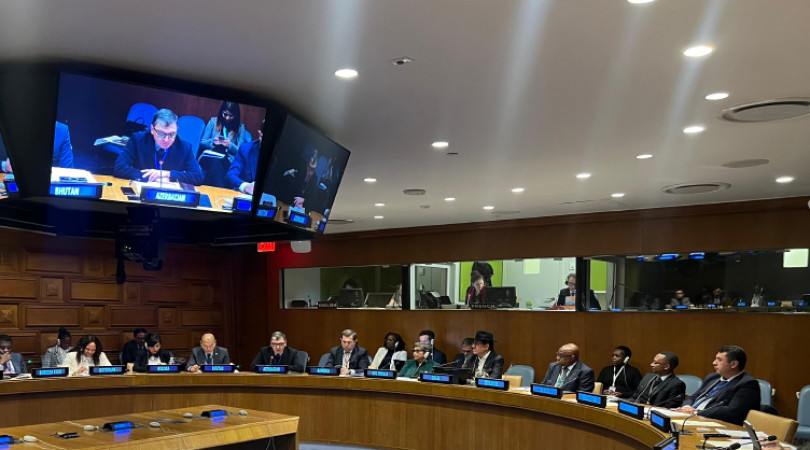Statement by Mr. Tofig F. Musayev Deputy Permanent Representative of the Republic of Azerbaijan to the United Nations at the General Debate of the First Committee of the 79th session of the United Nations General Assembly
|
Azərbaycan Respublikasının |
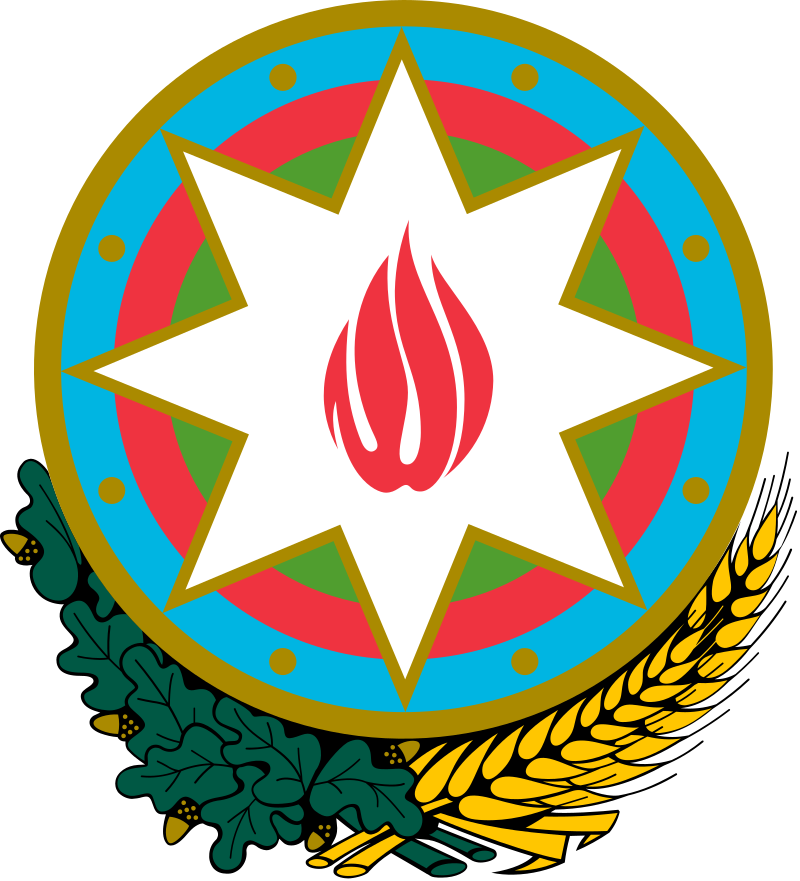 |
Permanent Mission |
|
633 Third Avenue, Suite 3210, New York, N.Y. 10017 |
||
|
Statement by Mr. Tofig F. Musayev 16 October 2024
Madam Chair,
At the outset, I would like to congratulate you and other members of the Bureau on your election. Azerbaijan is strongly committed to and faithfully complies with its arms control, non-proliferation and disarmament obligations.
Madam Chair, The aggression committed against my country by neighboring Armenia in the early 1990s undermined peace and seriously destabilized the security situation in the region. A significant part of the territory of Azerbaijan was seized by force and remained under unlawful occupation for nearly thirty years. During this period, Armenia turned these territories into a “grey zone”, where arms control and confidence-building measures were not implemented, to conceal its military activities from the relevant international and regional arms control and verification mechanisms, including the illegal deployment of forces and stockpiling undeclared and uncontrolled military equipment, armaments and ammunitions, in breach of the Treaty on Conventional Armed Forces in Europe (CFE Treaty). The counteroffensive operation and the local counter-terrorism measures carried out by Azerbaijan in the fall of 2020 and in September last year, respectively, put an end to the unlawful occupation of its territories and ensured the restoration of my country’s sovereignty and territorial integrity. Azerbaijan legitimately exercised its inherent right and responsibility to protect its people, defend its sovereignty and territorial integrity and restore peace, the legal order and stability in the region, acting exclusively on its sovereign soil, in full conformity with international law, the Charter of the United Nations and the relevant resolutions of the Security Council. The weapons destroyed, seized or surrendered during the hostilities or thereafter exposed Armenia’s longstanding denial of its responsibility for aggression, occupation and non-compliance with the arms control regime, and also demonstrated the scale and imminence of the security threats posed by the illegal presence of the armed forces of Armenia and terrorist and mercenary groups under its command and control on the territory of Azerbaijan. After the end of the conflict, Azerbaijan initiated the normalization process and offered Armenia peace based on mutual recognition of and respect for each other’s sovereignty and territorial integrity. The important steps have been taken to that end and significant progress has been made in bilateral negotiations on the draft peace agreement and the delimitation of the border between the two States over the past four years. However, the challenges remain. It is noteworthy that some countries that for decades turned a blind eye to or indulged in flagrant violations of international law by Armenia have increased their selfish interest in the region after Azerbaijan liberated its territories from occupation, restored its sovereignty and territorial integrity and eliminated the threat of violent separatism. Providing Armenia with large amounts of offensive weaponry and attempts to justify its militarization do not contribute to establishing peace and trust and promoting confidence building in the region. It should be taken into account that Armenia is yet to apologize and redress for its aggression, as a result of which tens of thousands of Azerbaijani civilians were executed in acts of mass murder, hundreds of thousands of people were forced to leave their homes, hundreds of cities, towns and villages in my country were razed to the ground and around 300,000 Azerbaijanis were expelled from their ancestral homeland in Iravan, Vedi, Basarkechar, Hamamli, Zangibasar, Gafan, Garakilsa, Meghri, Gorus and other districts, cities, towns and villages throughout Armenia. Moreover, Armenia refuses to take practical steps at the national level to root out the territorial claims from a number of its legal and political acts and especially from its Constitution, which underpinned the aggression against Azerbaijan in the past and constitute the main obstacle to the normalization of relations today. That Armenia is not guided by international law and the principle of territorial integrity is evidenced, for example, in its continued use of an inexistent name “Nagorno-Karabakh” to refer to the internationally recognized integral part of Azerbaijan, which previously was under Armenia’s occupation. It is pertinent to remind in this regard that the respect for the sovereignty and territorial integrity of States, including the recognition and use of geographical names established by legitimate and competent national authorities in relation to their sovereign territory, is a duty placed on all States and is an absolute imperative for the maintenance of peace, security and the legal order based on the universally recognized norms and principles of international law and the Charter of the United Nations.
Madam Chair, The conflict turned Azerbaijan into one of the most heavily mine-contaminated countries in the world, with an estimated 1.5 million landmines and unknown number of explosive remnants of war, posing severe risks to civilians, hindering the safe return of internally displaced persons to their homes in the liberated territories and delaying the essential reconstruction and development works there. As a result, throughout the conflict, 3,459 citizens of my country became mine victims, including 359 children and 38 women. At the same time, the number of post-conflict mine victims in Azerbaijan since November 2020 has reached 380, of whom 70 lost their lives and 310 suffered horrific injuries, the majority of whom are civilians, including children and women. The scale and gravity of the landmine threat in Azerbaijan necessitate urgent, continued and adequate international support to its humanitarian demining efforts, along with measures to ensure the responsibility and accountability of Armenia under international law for indiscriminately planting landmines, booby traps and other explosive devices and refusing to share their locations.
Madam Chair, Azerbaijan is committed and determined to continue its efforts towards eliminating the devastating consequences of the war, promoting conflict prevention, justice and accountability, advancing the results-oriented normalization process and building sustainable peace in the region. Thank you. |
||

